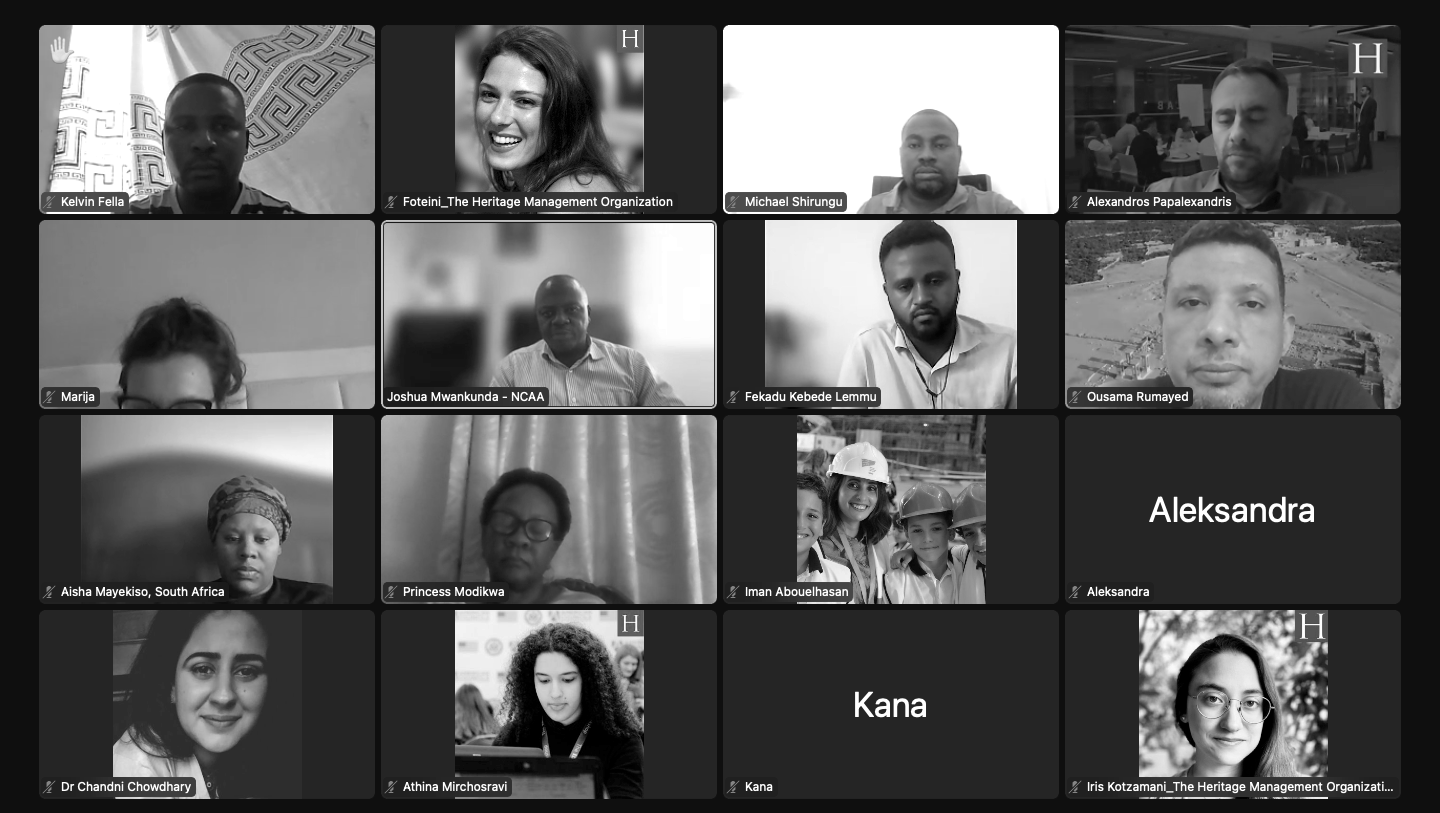Empowering Heritage Managers: Insights from the Strategic Planning Workshop
In a rapidly changing world, the preservation and management of cultural heritage require strategic planning and effective decision-making. HERITΛGE’s latest transformative 3-day online workshop titled “Strategic Planning for Heritage Managers” took place in mid-May and brought together 14 heritage managers from Africa, Asia, and Europe, providing them with essential strategic planning skills and knowledge.
Led by Alexandros Papalexandris, Assistant Professor of Management at the Athens University of Economics and Business, the workshop immersed participants in a comprehensive curriculum. Heritage managers from Botswana, Egypt, Ethiopia, Namibia, Tanzania, South Africa, Sudan, India, Syria, and North Macedonia had the opportunity to explore a variety of strategic analysis methods and tools. They gained insights into planning and evaluating alternative strategic options, understanding the requirements of strategy implementation projects, and assessing the macro-environmental factors influencing organizational strategies.
The participants delved into the core concepts of strategy, grasped the importance of strategic planning, and acquired the skills to craft compelling vision and mission statements. Analyzing the business macro-environment, including political, economic, social, and technological factors, were skills on which the heritage managers participating focused intensely during the training. Moreover, the workshop equipped participants with the ability to identify and leverage different types of resources and capabilities to gain a competitive advantage.
Towards Practical Application: To cement their newly acquired skills, participants were divided into three groups, and each group selected a project from within their cohort for an in-depth case study. The chosen projects included the establishment of a Children’s Museum at The Grand Egyptian Museum in Egypt, the preservation of the Palmyra World Heritage Site in Syria, and the development of the Kumanovo Museum in North Macedonia. By working on these real-world projects, the participants had the opportunity to apply their strategic planning knowledge and develop practical solutions.
While the workshop concluded after three intense days, the learning journey continues. Participants will reconvene with their instructor, Alexandros Papalexandris, on May 22nd for a tutorial meeting. This session will provide an opportunity for participants to seek guidance, clarify doubts, and receive valuable feedback to refine their final projects. This personalized approach ensures that the heritage managers are supported as they progress towards implementing their strategic plans.
The workshop featured a keynote speech by Joshua Mwankunda, a distinguished professional with two decades of management experience in government services and overseas assignments. Mr. Mwankunda showcased his expertise in heritage conservation, development, tourism, project management, procurement, and engineering. He has managed successful heritage projects within the Ngorongoro Conservation Area, including the conservation of Laetoli footprints, ElA and CHIA for road upgrades, museum development, and supervised the establishment of Sub Saharan Africa’s first Geopark.

